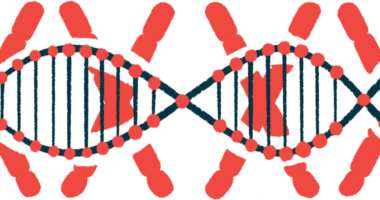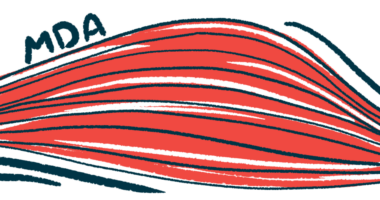Over 20 new MDA grants will fund research into muscle diseases
Several funded projects seek to treat, prevent types of LGMD, DMD

The Muscular Dystrophy Association (MDA) has awarded nearly two dozen new grants to fund research into various forms of muscular dystrophy, including Duchenne and limb-girdle, as well as related muscle diseases.
Altogether, the funding totals more than $5 million across 21 grants, according to a press release from the nonprofit.
“The Muscular Dystrophy Association is proud to continue driving critical research that brings hope and tangible progress to the neuromuscular community,” said Donald S. Wood, PhD, president and CEO of the MDA. “These projects reflect our dedication to the people we serve; we are eager to see how they will fuel clinical and scientific progress and, ultimately, lead to new treatments.”
There are 14 research grants in all, as well as seven development awards for fellowship trainees. The MDA partnered with two other nonprofits on three collaboration grants — one for a University of California Los Angeles researcher seeking to develop a gene therapy for a type of limb-girdle muscular dystrophy (LGMD).
Over $5M in funding awarded across 21 MDA grants
The newly awarded funding includes several research grants to well-established scientists. For example, Jyoti Jaiswal, PhD, a professor at Children’s National Research and Innovation, a hospital in Washington, D.C., won funding for his work to prevent muscle cell death and damage in Duchenne muscular dystrophy, known as DMD.
DMD is caused by gene mutations that lead to a lack of dystrophin — a protein that normally acts like a shock absorber in muscle cells to limit damage during muscle contractions. Without dystrophin, muscles accumulate more wear and tear damage over time, ultimately driving disease symptoms. Jaiswal’s project will explore a therapy that targets fat-like molecules to stabilize muscle cell membranes, with the goal of reducing muscle damage and improving function in DMD.
Another of the newly funded projects will explore the use of gene-editing technologies to treat LGMD, a group of genetic disorders characterized by muscle wasting in the shoulders and hips. That project, led by Scot Wolfe, PhD, of the University of Massachusetts Chan Medical School, will be testing gene editing to correct mutations that cause LGMD type 2G/R7. Wolfe is using stem cells, a mouse model, and other approaches to develop a platform that could also be expanded to treat other types of LGMD.
A separate project focused on LGMD is being jointly funded by the MDA and the Coalition to Cure Calpain 3. That project, led by Melissa Spencer, PhD, co-director of the Center for Duchenne Muscular Dystrophy at UCLA, aims to develop a gene therapy for LGMD type 2A/R1. This type of LGMD is caused by mutations in the CAPN3 gene; the project is focused on finding effective ways to deliver a healthy version of this gene to muscle cells.
“We are excited to support Dr. Spencer’s groundbreaking work in advancing gene therapy for LGMD2A/R1,” Jennifer R. Levy, PhD, scientific director of the Coalition to Cure Calpain 3, said in a separate press release. “By funding this project, we are not only pushing the boundaries of what’s possible in genetic research but also reinforcing our commitment to finding life-altering treatments for those affected by this rare condition. This collaboration with MDA will enable us to accelerate progress and bring hope to the LGMD2A/R1 community.”
Spencer said the new funding “will allow us to refine our gene therapy approach and move closer to a treatment that could significantly improve the quality of life for people living with LGMD 2A/R1.”
We are excited to award these new grants to researchers whose work has the potential to bring us closer to disease-modifying treatments for neuromuscular diseases.
According to Sharon Hesterlee, PhD, the MDA’s chief research officer, this work by Spencer “represents a major step forward in gene therapy” for this type of LGMD.
“Our partnership with C3 highlights the importance of collaboration in advancing research and finding potential cures for neuromuscular diseases,” Hesterlee said.
Other projects funded by the MDA in this round will focus on neuromuscular conditions like spinal muscular atrophy (SMA) and amyotrophic lateral sclerosis (ALS).
The MDA also has awarded more than a half-dozen grants to support early-career researchers studying muscular dystrophy and related disorders, with project goals ranging from making gene therapy safer to evaluating the effects of hormones in specific types of muscular dystrophy
“We are excited to award these new grants to researchers whose work has the potential to bring us closer to disease-modifying treatments for neuromuscular diseases,” Hesterlee said. “These grants not only support established researchers but also nurture the next generation of scientists who will continue the fight against these debilitating diseases.”
The MDA’s investment to date in neuromuscular disease research exceeds $1 billion, according to the association.








